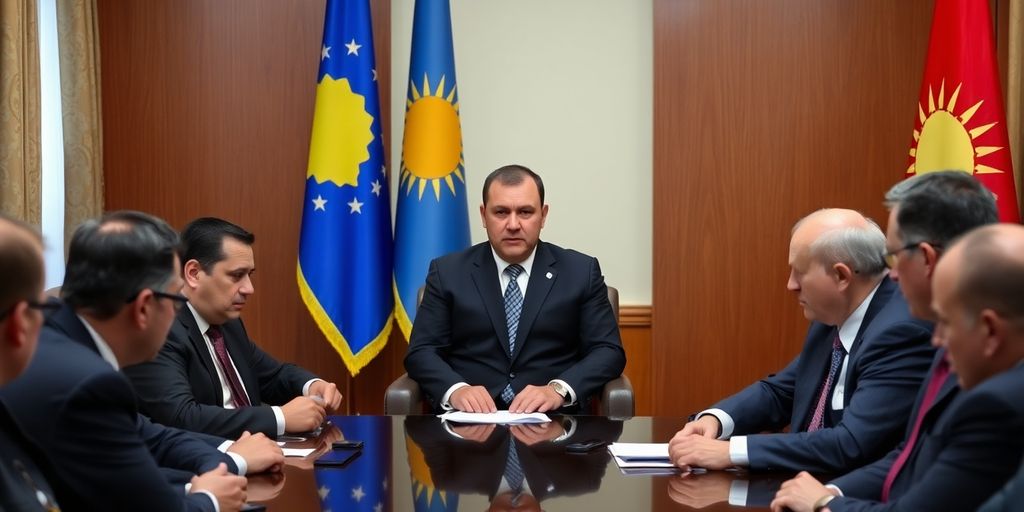Kosovo is facing a significant political crisis as President Vjosa Osmani contemplates addressing the Constitutional Court due to a prolonged deadlock in the Assembly. The inability to elect a parliamentary speaker has stalled the formation of a new government following inconclusive elections held on February 9, 2025.
Key Takeaways
- President Osmani may seek intervention from the Constitutional Court if the Assembly deadlock continues.
- The parliament has failed to elect a speaker for the fourth time, highlighting deep political divisions.
- The current stalemate could lead to snap elections if no government is formed soon.
Background of the Crisis
The political impasse in Kosovo began after the February elections, where Prime Minister Albin Kurti’s party, Vetevendosje, won the most seats but fell short of a majority. The party secured only 48 out of 120 seats, making it impossible to form a government without support from opposition parties.
Opposition factions have refused to support Kurti’s nominee for speaker, Albulena Haxhiu, citing her as a divisive figure. This refusal has resulted in multiple failed votes, with the parliament unable to convene officially without a speaker.
President Osmani’s Role
In light of the ongoing deadlock, President Osmani has initiated discussions with leaders of various political parties to find a resolution. She has expressed a willingness to explore all options, including potentially addressing the Constitutional Court if the situation does not improve.
Osmani stated, "If this drags on too long, there are several options, one is for the deputies to exercise their right, the other way is for me as president to address the Constitutional Court." Her approach aims to foster constructive dialogue among the parties involved.
Political Implications
The failure to elect a speaker has significant implications for Kosovo’s governance and its aspirations for European Union membership. The ongoing stalemate has delayed critical agreements under the EU’s Growth Plan for the Western Balkans, jeopardizing access to nearly 883 million euros in loans and grants.
Political analysts warn that the current crisis reflects a lack of political compromise and cooperation among Kosovo’s leaders. The potential for snap elections looms if the deadlock persists, with many observers believing that fresh elections may be the only way to break the impasse.
Economic Consequences
The political deadlock not only hampers governance but also poses economic risks for Kosovo. Delays in ratifying the EU Growth Plan could lead to a redistribution of funds to other countries if not resolved by June. This situation underscores the urgency for political leaders to reach a consensus and restore functional governance.
Conclusion
As Kosovo navigates this political crisis, the role of President Osmani will be crucial in determining the next steps. Her potential intervention with the Constitutional Court could pave the way for a resolution, but the path forward remains uncertain. The ongoing stalemate highlights the need for political leaders to prioritize collaboration and compromise to ensure the stability and prosperity of Kosovo.
Sources
- Kosovo’s president says she may address constitutional court if assembly deadlock continues, ConstitutionNet.
- Kosovo in political stalemate as parliament fails to elect speaker, Reuters.
- Stand-off leaves Kosovo unable again to elect speaker, France 24.
- Deadlock in the Kosovo Assembly, Osmani meets with parliamentary parties, A2 CNN.
- Stand-off leaves Kosovo unable again to elect speaker | Nation, Community Newspaper Group.





